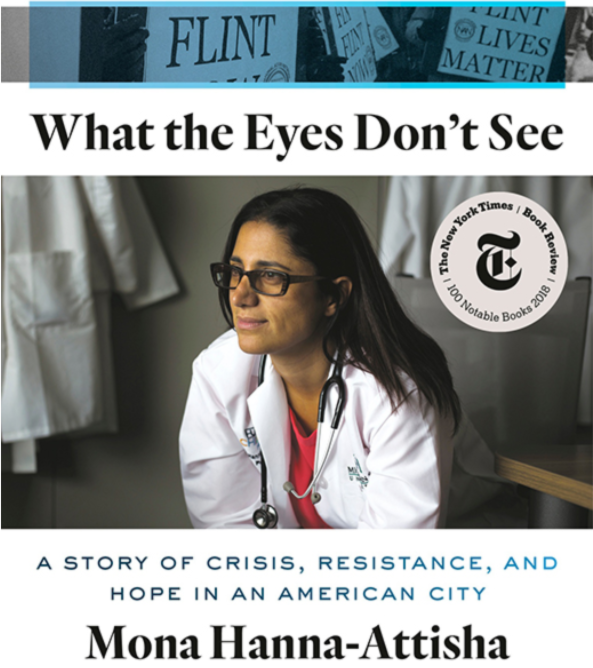Dr. Mona Hanna-Attisha discusses how to fight environmental injustice in her new book, “What the Eyes Don’t See: A Story of Crisis, Resistance, and Hope in an American City”
A promotional flyer of the virtual event, “What The Eyes Don’t See: A Story of Crisis, Resistance, and Hope in an American City” on Thursday, October 14 at 4pm (UMD College of Arts and Humanities)
University of Maryland’s first-year book author, Dr. Mona Hanna-Attisha, joined the university on Thursday for a discussion about her book “What the Eyes Don’t See: A Story of Crisis, Resistance, and Hope in an American City.”
The book talks about the struggle for clean water in Flint, Michigan along with the idea of how racism, sexism and economic disparities affect local communities. Hanna-Attisha reminded the audience to fight for what they believe in and never stop pushing for change.
“With crisis comes opportunity,” Hanna-Attisha said.
After the Flint water crisis, which left communities that are predominantly of color sick from contaminated drinking water, many residents of Flint advocated for help and assistance from the government. However, many realized the Flint water crisis was a problem under a much bigger systematic issue - environmental racism.
“Race is still the biggest factor of environmental contamination,” said Hanna-Attisha.
Environmental racism is when the government makes decisions that deliberately disadvantages minority communities, like exposing Flint residents, who are primarily poor Blacks, to contaminated drinking water.
Hanna-Attisha explained how these are policy choices that the government makes to create “hyper-segregated communities” not just in Flint, but across the country.
“Where you are born into, it should not predict how you end up. These are policy failures,” Hanna-Attisha said. She further explains that the government discriminates against minority groups in policy-making, allowing them to be located in these dangerous communities.
“We have yet to create an America, I believe, and we have yet to see it, where the trajectory of our children is not bound by things like ZIP codes and census track and color of skin and school district and drinking water source,'' Hanna-Attisha said. “We are not there yet but that’s where we need to go.”
Hanna-Attisha advised that environmental racism will take decades to fix, but to not feel discouraged.
“It’s understandable to feel burned out or abandoned. Many of these communities are poor communities and predominantly of color and they feel abandoned,” Hanna-Attisha said. She encouraged everyone on the call to take action by not allowing voices to go unheard and support journalists who are telling these stories.
“The unsung heroes of the Flint story are journalists and investigative reporters who can dig deep and ask personal questions,” Hanna-Attisha said. “If you can do anything, support journalism so that they can shine a light on stories that have been hidden for so long.”
Hanna-Attisha reminded how crucial it is for people to use their voices to speak out about issues that are important to them and to not allow problems in society to go unnoticed. These issues affect all of us, whether directly or indirectly and it is critical people take action.
“This is a story about all of us. I didn’t look away. We have a lot of work to do together like eliminating poverty, eradicating racism, narrowing inequality, reversing the climate crisis, and preserving our fragile democracy and protecting the rights of women,” said Hanna-Attisha.

